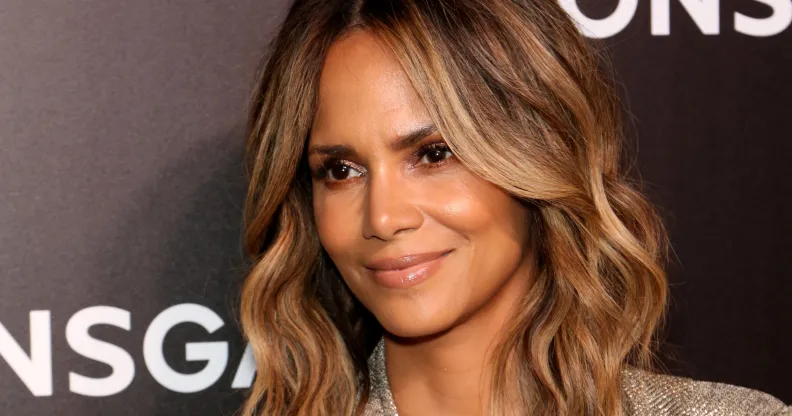Halle Berry pulls out of playing transgender man in upcoming film after swift and severe backlash

Halle Berry said the trans community should have the chance to tell their own stories. (Gabe Ginsberg/WireImage)
Halle Berry has pulled out of a film role in which she’d play a transgender man and issued an apology, following a severe backlash.
During an Instagram Live last Friday with hairstylist Christin Brown, the former X-Men star suggested she was planning to play a trans man in an upcoming film.
Speaking about her plans for the potential future project, Berry explained the film was pitched to her some time ago, but was put on the back-burner ahead of production on her directorial debut Bruised, in which she plays a disgraced MMA fighter.
She said: “I’m thinking of [playing] a character where the woman is a trans character, so she’s a woman that transitioned into a man. She’s a character in a project I love that I might be doing.”
Berry was criticised online for choosing to take on a trans character and for misgendering the character several times during the interview.
Last night (July 6), she pulled out of the role and issued an apology, saying: “The transgender community should undeniably have the opportunity to tell their own stories.”
— Halle Berry (@halleberry) July 7, 2020
“Over the weekend I had the opportunity to discuss my consideration of an upcoming role as a transgender man, and I’d like to apologise for those remarks,” Berry posted on Twitter.
“As a cisgender woman, I now understand that I should not have considered this role, and that the transgender community should undeniably have the opportunity to tell their own stories.
“I am grateful for the guidance and critical conversation over the past few days and will continue to listen, educate and learn from this mistake.
“I vow to be an ally in using my voice to promote better representation on-screen, both in front of and behind the camera.”
Berry’s critics included those behind Disclosure, the new Laverne Cox documentary on Netflix about Hollywood’s depiction of transgender people.
“Hi Halle Berry, we heard you’re considering playing a trans man in your next project,” Disclosure tweeted on July 6.
“We ask that you please watch Disclosure on Netflix first to understand how cis actors like yourself acting in trans roles has major cultural consequences offscreen.”
Hi @halleberry, we heard you're considering playing a trans man in your next project. We ask that you please watch @Disclosure_Doc on @netflix first to understand how cis actors like yourself acting in trans roles has major cultural consequences offscreen. #DisclosureNetflix— Disclosure Documentary (@Disclosure_Doc) July 6, 2020
After Berry’s apology, the Disclosure account thanked her for “listening and learning”.
LGBT+ advocacy organisation GLAAD also acknowledged Berry’s apology, tweeting: “We are pleased that Halle Berry listened to the concerns of transgender people and learned from them.
“Other powerful people should do the same. A good place to start is by watching Disclosure to learn about trans representation in media.”
We are pleased that @halleberry listened to the concerns of transgender people and learned from them. Other powerful people should do the same. A good place to start is by watching @Disclosure_Doc to learn about trans representation in media. https://t.co/SAxSvXxbk3— GLAAD (@glaad) July 7, 2020
Casting cis actors like Halle Berry as transgender characters does not usually end well.
Berry’s comments come two years after Scarlett Johansson was strongly criticised for signing up to play the role of a trans man in the film Rub and Tug.
After pleas from the trans community, Johansson eventually opted to drop out of the project, which was ultimately cancelled despite calls to recast it with a transgender star.
There are fears Berry’s film project could end up the same way, after the clip was noted by The Geekiary.
In the wake of the Rub and Tug debacle, a number of major Hollywood production companies backed a 2018 letter that called on the industry to “use its power to improve the lives of trans people” by telling trans stories “authentically” with trans actors and creatives.
The accompanying TRANSform Hollywood guidebook for creatives cautions against casting major cisgender stars as trans people in projects.
It says: “The world is evolving, and today it is a mistake, especially if you are cross-sex casting (a cis man to play a trans woman, or a cis woman to play a trans man.) It simply isn’t cost effective to take this risk; recent projects which cast cis actors to play trans roles have felt the tide of public opinion turn against them and have taken a hit at the box office.”
The problematic history of trans representation in Hollywood was recently chronicled in the Netflix documentary Disclosure.

